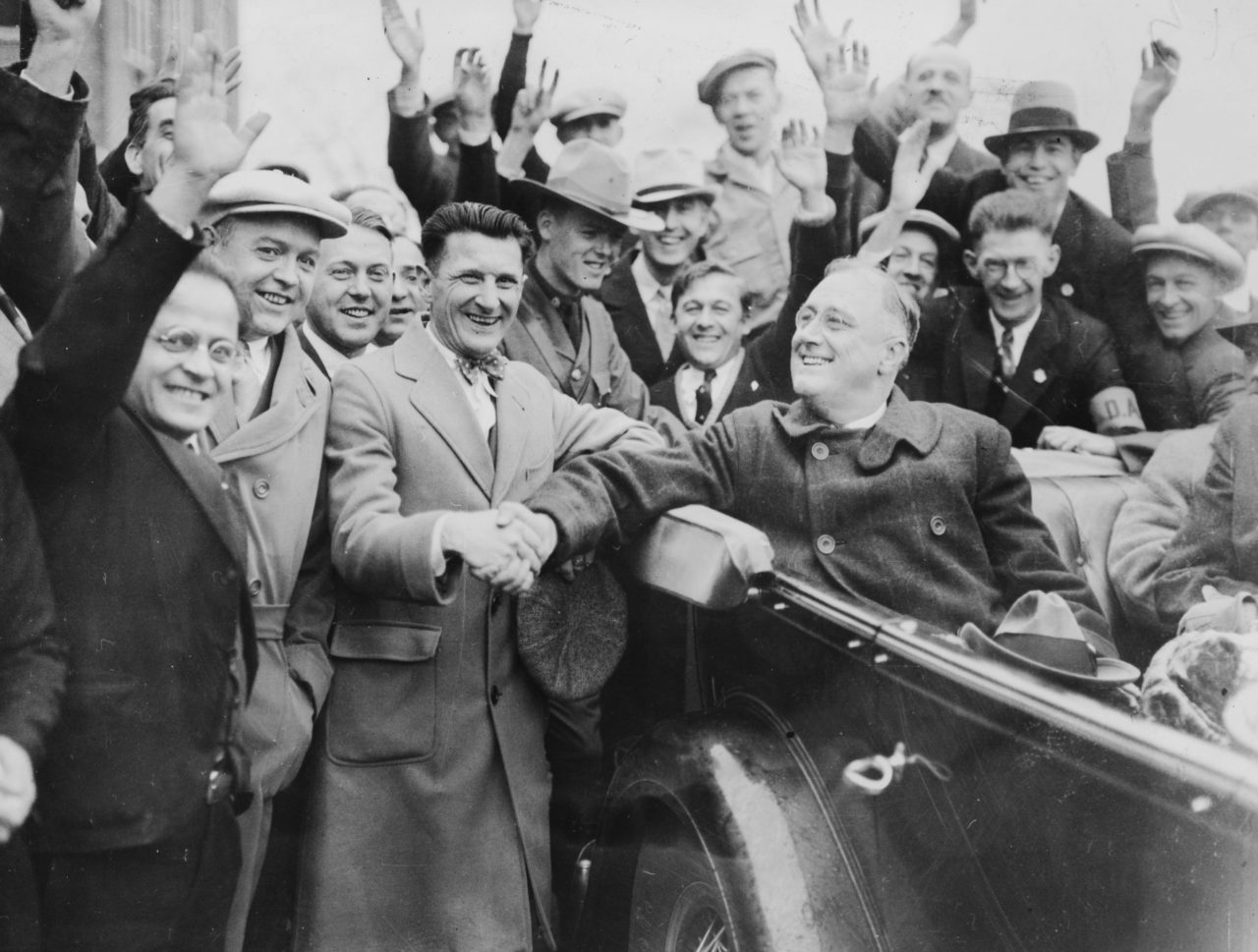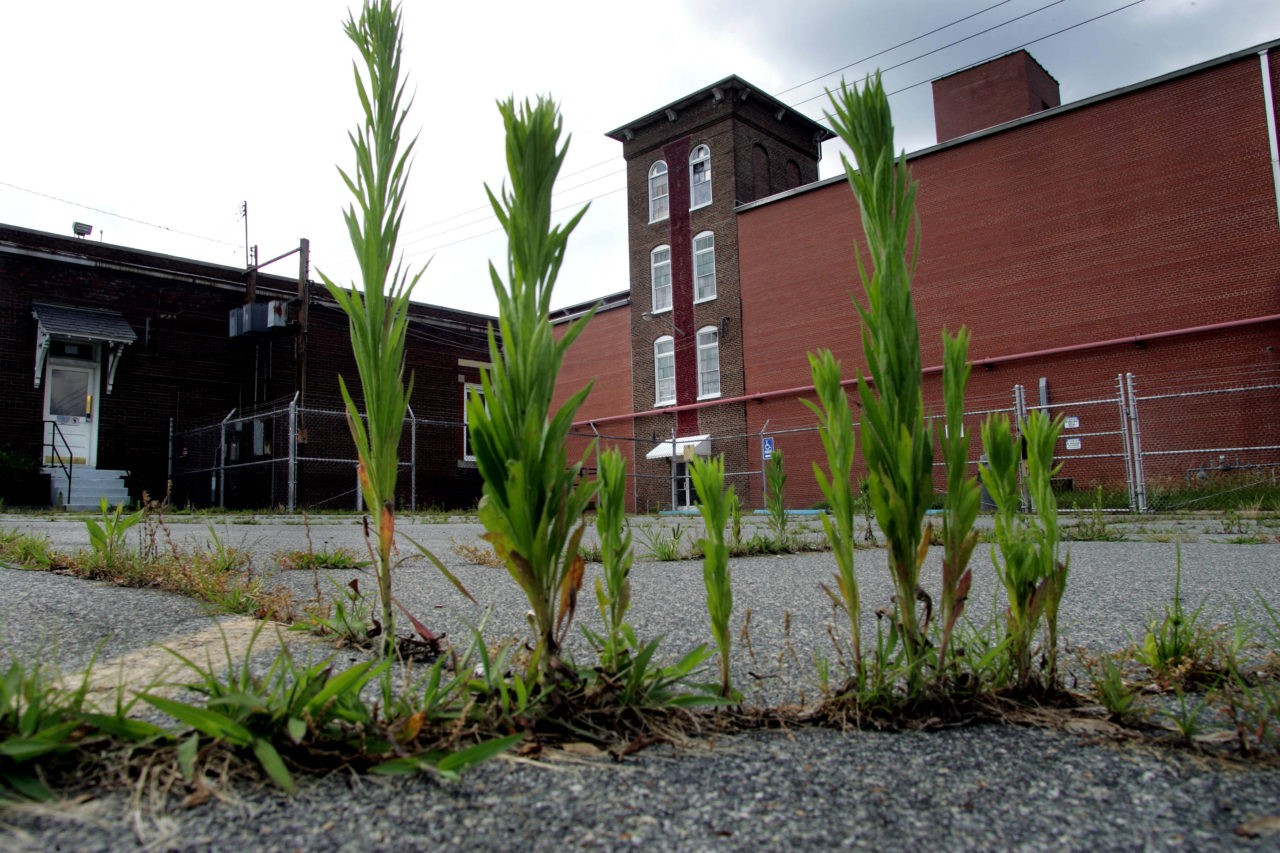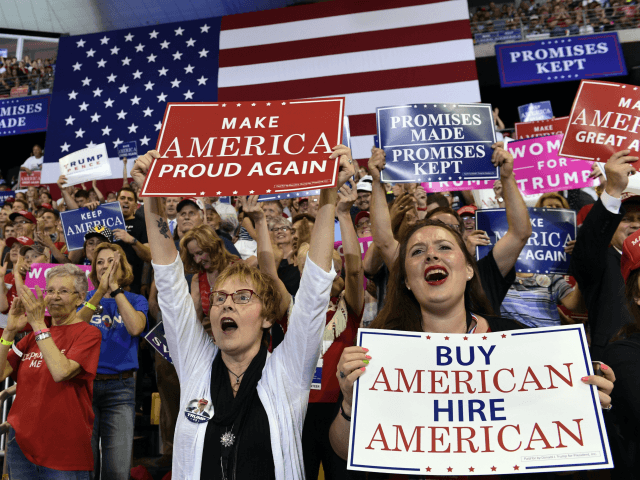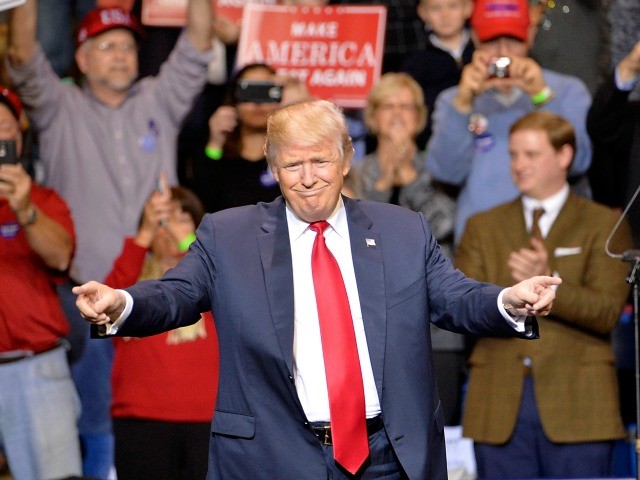If you think everyone on the left believes in open borders and utopian world-federalism, you ought to meet John Judis, or at least check out his new book, The Nationalist Revival: Trade, Immigration, and the Revolt Against Globalization.
Yes, Judis’ background is solidly on the left, and even today, he counts as no sort of Republican conservative. And yet here he is, writing a book in praise of nationalism, including border security, and even, yes, American sovereignty.
In fact, Judis is trying to reclaim nationalism, at least a share of it, for the left. As he writes, “Nationalism is an essential ingredient of a democracy.” In other words, the social goals that Americans voted for and that Judis values—including public safety, the rule of law, worker protections, civil rights, environmental protection, and a social safety net—all depend on the existence of national protections, and those can come only from a robust nation-state.
And come to think of it, most on the right agree with those goals, too, albeit perhaps to a different degree and in a different form. So who knows, maybe there could yet be a convergence, in which left and right agree to disagree on many issues, but always within the shared context of service and loyalty to our republic.
For his part, Judis sounds almost American Legion-ish when he writes, “National pride and loyalty are inculcated through the routine details of living and learning. These include learning of a country’s history and heroes, filtered through a rosy prism, visiting its monuments, taking part in its celebrations and holidays, saluting its flag, singing its national anthem, and referring to the nation’s inhabitants as ‘we’ and ‘us.’”
Yet as Judis correctly points out, “nationalist sentiments do not necessarily lean rightward or leftward.” We might recall that back in 1936, President Franklin D. Roosevelt, patriotic liberal that he was, declared that his goal was to “build a structure of economic security for all our people—a safer, happier, more American America.” Just a few years later, he was commander-in-chief as 12.2 million Americans in uniform spearheaded our victory in World War Two, backstopped, of course, by a righteously resolved country. It’s hard to get more nationalistic than that.

President Roosevelt shaking hands with supporters at the Veterans Hospital in Beacon, New York, November 7, 1932. (Photo by Edward H. Gooch/Keystone/Getty Images)
In that same large spirit, Judis quotes Neil Kinnock, a British Labour Party leader of the last century: “I would die for my country, but I would never ask my country to die for me.”
So we can see: Whether an individual is on the right or left—whether he or she supports, for example, higher taxes or lower taxes—is a lot less important, from a nation’s point of view, than a basic orientation toward supporting and defending that nation.
However, shared nationalist feeling doesn’t always come easily, nor does it persist automatically. “When there isn’t such a common nationalist sentiment,” Judis writes, “the country becomes difficult or impossible to govern.” So we can see, it’s in all of our interest, right and left, to see that patriotic nationalism is not only conserved, but actively cultivated.
A part of such nationalistic cultivation, of course, is an understanding of psychology, including group psychology. Judis quotes a contemporary academic as saying, “Nationalism provides us with a way … to feel moral, right, and just. It gives us a way to join with others in a heroic struggle. It gives a sense of purpose and meaning to our lives, and even to our deaths.”
Yes, nationalism can be a stern god; it’s about duty to the nation, and the citizenry, as well as benefits. Judis quotes another scholar: “In acknowledging a national identity, I am acknowledging that I owe special obligations to fellow members of my nation that I do not owe to other human beings.”
So we might ask: If there’s been so much keen understanding of nationalism as a necessity of collective power and group identity, then how has it happened that nationalism—particularly, American nationalism—has been under siege in recent decades? How did it come to pass that nationalism has been tossed in the same pot as militarism, racism, and fascism?
Judis confronts those questions head-on. As he tells us, the fact that German nationalism, for example, metastasized into Nazism speaks to unique aspects in German history, as well as plain bad luck. So the perversion that was Nazism doesn’t tell us anything about the true essence of nationalism; after all, to this day, Israel—understandably, forever wary of Nazism—is itself plenty nationalistic. There’s no shortage of flags and parades in the streets of Jerusalem or Tel Aviv.
Still, Judis is careful to note, as with any expression of human nature, nationalism can be for better or for worse. So while we don’t have to worry about reliving Hitlerism, we do have to think about keeping our country together as a decent place for all its citizens.
Thus we come to perhaps the strongest part of Judis’ book: his consideration of how the American Experiment has come to be jeopardized in recent decades—and what might be needed to help it revive.
Judis traces much of the challenge to the unforeseen impact of the Immigration and Naturalization Act of 1965. That was the legislation, spearheaded by the late Senator Edward M. Kennedy, which removed many restrictions on legal immigration into the U.S. Of course, other factors were at work at the same time, including lessened government concern about illegal immigration. Thus it was that population of illegal aliens from Mexico—and Judis, interestingly enough, freely uses the word “illegal,” as opposed to some soft-soaping euphemism—rose from 540,000 in 1969 to 8.4 million in 2000. It’s easy enough to see: It’s impossible to have a cohesive country when legal citizens are mixed with illegal non-citizens.
Another challenge to American national unity is economic globalism. As we all know, unfair trade turned many manufacturing hubs into Springsteenian ghost towns.
Economic dislocation is always an aspect of a dynamic market economy, and yet since the 1970s, Judis continues, there’s been less political interest in an active remediation of economic damage. Uncle Sam didn’t use his purse to create new public works and other projects that could have filled up the economic gaps. Why not? One reason was the impact of the environmental movement; the greens actively liked the idea of America manufacturing less and mining less. And at the same time, a revived spirit of laissez-faire, taking hold among policymakers in both parties, contributed to elite complacency about the suffering of those whom Judis calls the “left-behinds.”

Weeds grow in the parking lot of the closed Culp Weaving plant in Burlington, NC, on June 8, 2009. The upholstery giant moved to China to take advantage of cheaper labor. (AP Photo/Jim R. Bounds)
As the author notes, these globalist policies were plenty popular with the elite, but never popular with the American people as a whole. Judis cites one poll in 1985, which found that 75 percent of Americans thought that the U.S. trade deficit was a “bad thing,” and another poll from 1994, which showed that 66 percent of Americans favored “decreasing the level of immigration.” And yet public opinion notwithstanding, the globalist elites, dominant in both parties, happily continued to preside over dramatic increases in both the trade deficit and immigration.
Notably, Judis recalls that the Clinton administration had promised that China’s admittance into the World Trade Organization (WTO) would add “hundreds of thousands of American jobs.” In fact, the impact was the loss of 3.4 million jobs.
Speaking of the WTO, Judis adds that globalist institutions, too, encroached on American nationalism. As he observes, the four U.S. presidents prior to Donald Trump—two from each party—“encouraged economic integration, dubbed globalization, and the subordination of national sovereignty to international rule.”
Interestingly, the American government’s disinterest in Americanism was matched by many in the business world. Judis quotes a former CEO of Exxon, Lee Raymond, who was asked about building more facilities in the U.S. Raymond snapped back, “I am not a U.S. company and I don’t make decisions based on what’s good for the U.S.”
As a consequence of all these factors, the solidity of American life melted into the air. “The combination of capital mobility and unskilled immigration,” Judis writes, “deterred companies from lowering their costs through increasing productivity.” That is, cheap foreign labor coming to the U.S., legally or illegally, made it easy for companies to skip buying new and better machinery—and such productivity improvements, of course, are the key to a rising standard of living.
The economic impact was a damaging skew. On the one hand, the industrial places, backwaters to globalism, were hit hard. On the other hand, “the libertarian, secular, and cosmopolitan” cities, mostly on the coasts, were big winners. In fact, not only did the winners in this economic skewing seem not to care about the fate of their fellow countryman, but they seemed obtuse, too, about the overall fate of the nation.
Thus the political impact was skewed as well. In the author’s words, afflicted heartlanders were “immediately susceptible to nationalist appeals … over trade deals that seemed to favor foreigners over the United States, a massive influx of legal and illegal immigration that appeared to take away jobs and raise social costs, and the onset of Islamist terror attacks to which they believed porous borders had made them vulnerable.”
We might add that Judis has been following these phenomena for years, with a distinct sympathy for the salt-of-the-earth working class. Two years ago, on the eve of the 2016 election, he published a thoughtful chronicle, The Populist Explosion: How the Great Recession Transformed American and European Politics, which this author reviewed here for Breitbart News.
Of course, by now it’s evident that the populist explosion of two years ago has, in fact, become a nationalist revival. As Judis makes plain, the economically skewing impact of globalism is a part of this nationalist phenomenon, but only a part. That is, plenty of nations have had other reasons, too, for reasserting nationalism.
For instance, in the Middle East, the Bush 43 administration sought to remake the region in America’s image. That didn’t work out, of course, because the Arabs and others have their own ideas. Here’s Judis on the boomeranging of Operation Iraqi Freedom: “Instead, the invasion awakened suppressed nationalist sentiments as well as tribal and religious hostilities. … It inspired the rise of ISIS and would contribute to the spread of Islamist terrorism in Europe and the United States and to the flood of refugees that destabilized Europe in 2015.” As Donald Trump, a fierce critic of Bush’s war, might say, Nice.
Then there’s the revival of Russian nationalism. That country reacted badly to a ill-fated globalist initiative of the 1990s, the dramatic expansion of NATO, which reached all the way to Russia’s frontier. Judis records a prescient warning from that era: an expanded NATO “will strengthen the non-democratic opposition, [and] undercut those who favor reform and cooperation with the West.” In retrospect, it’s easy enough to see how someone such as Vladimir Putin could ride the Russian nationalist backlash into power back in 2000.
Citing more recent events, Judis also remembers the wild overconfidence of Victoria Nuland, then Barack Obama’s assistant secretary of state; she thought that sanctions on Russia over Crimea and Ukraine would bring Putin to his knees. Instead, as Judis notes, the opposite happened: “The reason that Putin’s actions were popular was because there was a sense of national grievance to which he could appeal.”
And as for China’s nationalism, well, the Chinese simply never got the memo that nationalism was anything but good.
Completing his tour of nationalism around the world, Judis offers a quick assessment of Trump’s worldview: “Trump is clearly not a foreign policy thinker [and yet] unlike his predecessors, he clearly recognized national differences and didn’t aspire to transform other countries into American-style market democracies.”
That’s the key point about nationalism—it reflects the nation itself, and nations are not all the same. It is, indeed, revealing that Trump grasps what the “experts” do not. Judis concludes: “The revival of nationalism is essential to moving the United States and Europe away from the illusions and excesses of globalization.”
And we might add that the best hope for peace in the world is that each nation, on every continent, can feel safe within its own secure borders. As candidate Trump said in 2016, “The nation-state remains the true foundation for happiness and harmony.” And last year, President Trump added, “And so, for family, for country, for freedom, for history and for the glory of God, protect your home, defend your home and love your home today and for all time.”
Those are sentiments that both left and right ought to be able to agree on— and for his part, like FDR before him, Judis certainly would seem to. But no patriotic partisan, left or right, need worry: Even within a properly unified nation, there’ll always be plenty to fuss about.


COMMENTS
Please let us know if you're having issues with commenting.